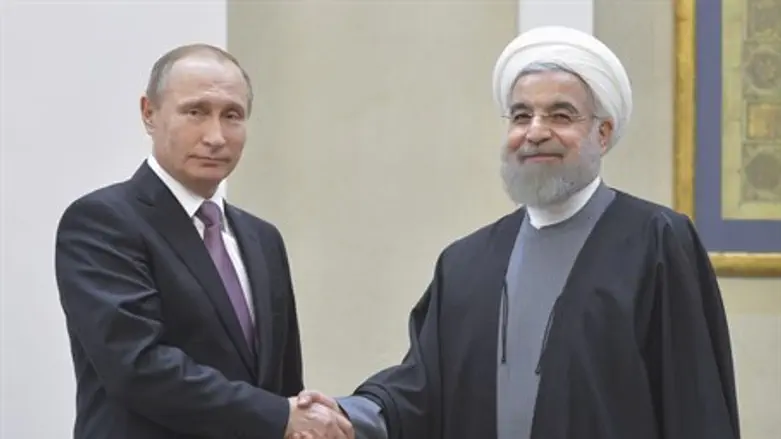
The deputy head of the Atomic Energy Organization of Iran (AEOI) announced on Tuesday that Russia will start building two new nuclear power plants in Iran next week.
AEOI deputy head and spokesperson Behrouz Kamalvandi was quoted by the Iranian Mehr News Agency saying that the plants will be "joint nuclear power plants," without specifying their usage.
The controversial nuclear deal signed earlier this year stipulates that Iran will not build any new uranium enrichment facilities for a period of 15 years. While Iran's new nuclear plants will not necessarily be used to enrich uranium - although they will at the least require enriched uranium in order to operate - Iran has a long history of lying about the military aspects of its nuclear program, as proven by recent International Atomic Energy Agency (IAEA) reports.
Ascertaining the usage of the new plants will be made all the more difficult because the deal gives Iran 24 days before any inspection.
Iran announced the construction of two new nuclear facilities in a southeast region on the Indian Ocean in July, and in August began talks with China to build several additional nuclear reactors.
In his statements on Tuesday, Kamalvandi spoke about the implementation of the nuclear deal, saying, "certain steps were taken which have brought about good conditions with regard to decreasing the number of centrifuges."
He also spoke about the Arak heavy water reactor, which world powers are to help redesign so that it cannot produce weapons-grade plutonium according to the deal.
But Kamalvandi said that it would be Iran, and not world powers, who redesign the site, while Chinese experts will merely be present to supervise.
"The presence of Chinese does not mean that China is going to undertake the redesigning procedures; rather the task will be carried out by Iranian engineers with Chinese as supervisors," he said.
According to the nuclear deal, Iran was to act as project manager in redesigning Arak, while China was to "participate in the redesign and the construction of the modernized reactor," and the US was to "provide technical support and review of the modernized reactor design." France, the United Kingdom and Germany were to participate in design review and Russia was to provide consultative services.
The Iran deal additionally has the Islamic regime inspecting its own covert Parchin nuclear site, which Iran has admitted to using to test exploding bridge wire nuclear detonators and has refused requests by international inspectors to see the site.
